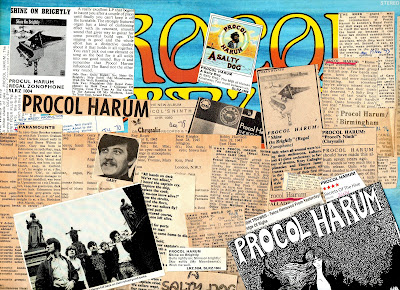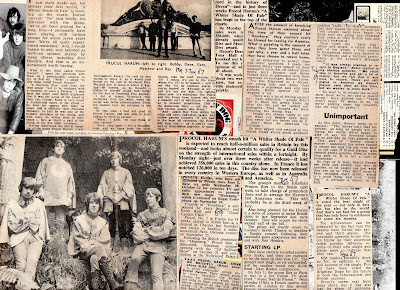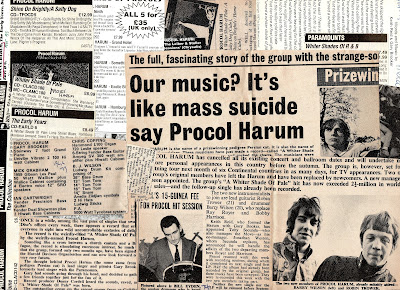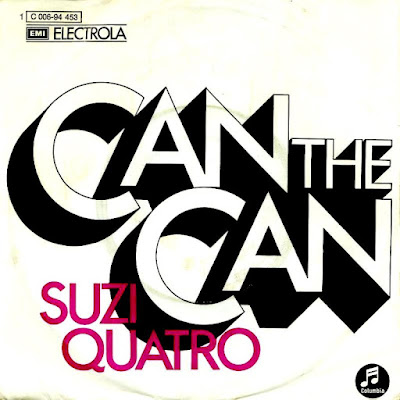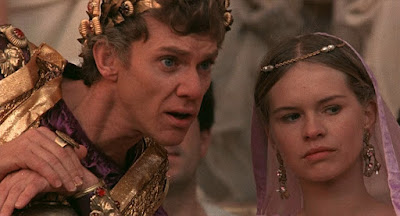reality-TV route just yet…
Everyone knows Suzi Q.
She gets recognised on the street. ‘Oh yes. That happens all the time. But funnily enough I had to decide when this all started, and I made up my mind, was I going to hide behind sunglasses all my life, or was I going to be normal? So, I don’t wear those sunglasses, and mostly it’s fine. Of course there are jerks. There are always jerks. But it’s just how you treat it.’
There were wild women in Rock before Suzi Q. Brenda Lee and Wanda Jackson. Honey Lantree was drummer with the Honeycombs and Megan Davies played bass with the Applejacks. After Suzi there was Gaye Advert and a deluge of Riot Grrrls. But there’s never been anyone quite like Suzi Q.
She has two homes. One in Hamburg. But today ‘I’m at my home in Essex’ doing a mind-numbing series of non-stop interviews. And she’s not wearing the all-over black leather? She laughs, ‘No. I’m sorry to ruin your fantasy.’
Is putting on that leather stage-outfit a way of assuming the ‘Suzi Quatro’ persona, as David Bowie used to become Ziggy Stardust on stage? ‘For me, I can only speak for me. There is a separation. If you read my book ‘Unzipped’ (2007), I write it in two voices. But nothing is manufactured, they’re both me. Both are totally me. Nothing about me is phony. I pride myself on being a real person. It depends to a degree on what I’m wearing. When I’m playing live I like to go watch the other bands from the side of the stage. Then I go and put on a little make-up. I’m not really a make-up girl. But then I’m ready to be ‘Suzi Quatro’.’
Doesn’t it get hot inside all that leather? ‘It is really hot. But it’s a timeless image. I chose it, it suits me and I’m happy with it. I’m comfortable in my skin, leather though it may be. I’m sixty-four, I’m still up there shaking my ass, in a leather suit, how ridiculous is that, when you think about it?’
Her ‘No Control’ tour bears all the hallmarks of a Seventies Golden Oldies package, with David Essex, Les McKeown’s Bay City Rollers, and Suzi’s former chart-mates Smokie. Do those nostalgia-audiences accept the new songs, or do they just want the old hits? ‘Well, this is my second time headlining an arena tour. We had such a good time last time. There has to be space for four acts. So I’ll do the single off the album – “No Soul/ No Control”, and a few others. But you will get to hear your favourites.’
After all, there’s shared history at work here. Surely she must have met David Essex backstage at ‘Top Of The Pops’? ‘Yes. Many times. We did a TV show together in Spain too. He’s a good guy.’ And she had “Stumblin’ In” – a big duo hit with Chris Norman, who was then lead voice with Smokie. ‘There have been line-up changes with Smokie, of course. But this Smokie has been together for twenty years. And they’re good.’
She talks quickfire fast and confidently, but on-message too. ‘I’m a communicator, that’s actually who I am. I don’t do smalltalk.’ When it seems I’m not enquiring enough about the new album, she prompts me. There’s nice Punk lettering on the ‘No Control’ cover-art. But it’s unmistakably Suzi from the Power-Pop title-song guitar play-in, the defiant ‘you can’t take away my soul’ chanted over crashing pile-driver drums. ‘The message is ‘don’t let go of yourself for anyone’, this is my personal mantra, all you have in this world – is you.’
‘Yes, this album is me’ she insists. ‘It’s true to what I am, and true to my story. It’s good if it feels uncomfortable, that means that it’s truthful. It’s now. I’ve gone around the block, and I’ve come home again. I’m back now. I’ve gone full circle. This is me now, this album has a contemporary sound, wouldn’t you agree?’
I hedge. It’s difficult to say what ‘contemporary’ consists of. I’d hazard more at timeless. She seems happy with that.
The album was largely written with son Richard Tuckey, while sitting on the garden patio with acoustic guitars during the long balmy English summer of 2018, with an iPad recording app and lots of song-lyrics on paper. ‘It was just strange. It was an accident’ she ponders, as though she’s still working it out herself. ‘This album happened by accident. My son Richard plays, and he’s a fine musician. We were just in the RAK London Studios with KT Tunstall, working towards maybe an EP of duets, and Richard was playing session guitar and overdubs. Richard and I had often talked about working together, but it never seemed like the right time. Then I was sitting on the patio and he said ‘I want to write some songs with you’, and I said ‘OK Richard’. The time was right. He played me what was to become “Don’t Do Me Wrong”, and I thought ‘I can work with this.’ I didn’t know where it was going, but it was happening. Next thing we’re making an album, and it’s like… it was flying. I’m not that clever, although I’m clever. I’ve not tried to recreate anything. Oh no no, it’s now. I didn’t want to plan it. I didn’t want to overthink it. It’s just like, whatever it is, there’s a connection, he pushed the ‘Suzie Quatro’ button. Whatever that is, he pushed that button. I can’t explain it any better than that. Whatever the song is, it is. Each song has its own character. It’s a very honest album.’
There’s boogie-romp and quivering reverb on “Going Home” where she’s staring at the ceiling asking ‘how can you lay by my side, you always withdraw and hide.’ While “Strings” has the classic anthemic chorus – E, F, F-sharp, with a horn arrangement from long-term collaborator Ray Beavis, and words about the ties that hold us all together, less cosmic string-theory as the relationships that bind us, and maybe the guitar strings of the songs we sing. “Love Isn’t Fair” – one of two solo Suzi compositions, is chiming steel-band swaying sing-along catchy-Pop, with lilting horns and rim-shot drums, as she protests at the unfairness of amour… M-mmmm. ‘I wanted to create a Blondie (“The Tide Is High”) meets Mavericks, and I think I accomplished that.’ And the killer head-banging hard-riff of “Macho Man”, strutting and swaggering ‘down where the feelings go’.’
With forthright candour, she once told German Teenage magazine ‘Bravo’ how she plays bass guitar because the sound and vibrations go just where she needs them. Right between her legs. Down where the feelings go…
--- 0 ---
Some found it strange that when she presented her Radio Two series it focused not on her seventies chart heyday – but was a more 1950s-based ‘Rockin’ With Suzi Q’. But that’s entirely consistent. Just – genealogy roots-wise, DON’T EVER ask Suzi about her misleading old Wiki entry, as I naively do. She doesn’t like it. In fact, she HATES it! Yes, her mother was Hungarian, but it was when her Italian paternal grandfather arrived at Ellis Island as an immigrant, that the official takes one look at the name ‘Quatrocchi’ on the papers, and says ‘no way, you’re Quatro’. So she was always Quatro and ‘it’s going into four generations now.’ Susan Kay Quatro was born 3 June 1950 in a Detroit the way it was before ‘Robocop’ (1987) and Eminem’s dour ‘Eight Mile’ (2002), when Motown rhythms made it the ‘Sound Of Young America’. The fourth of five children in a musical family, she made her show-biz debut as an eight-year-old playing bongos with her father’s moderately-successful jazz combo – The Art Quatro Band. At fourteen she was a TV go-go dancer as Suzi Soul. But as in her poem “Self Discovery” – yes, she writes poetry too, ‘that’s what your soul keeps screaming, there’s got to be more.’ That’s when the sisters saw the Beatles on the ‘Ed Sullivan Show’, and at fifteen they formed mini-skirted five-piece girl-group Suzi Soul & The Pleasure-Seekers with sisters Arlene, Patti and later, little-sister Nancy. Her father gifted her a Fender Precision bass – ‘the Rolls Royce of basses,’ which decided her future.
Is Suzi still a pleasure-seeker? ‘A hedonist? Nope. I never was. No, it was just a name for a band. And it was great training. A nine-year apprenticeship.’
The Pleasure-Seekers release two singles – including Suzi’s composition “Brain Confusion”, and “What A Way To Die” which later features in revenge sexploitation-movie ‘Blood Orgy Of The Leather Girls’ (1988), and they play dates clear across from Las Vegas to Vietnam. In late-1970 veteran-hitmaker Mickie Most heard her playing with the group – by then renamed Cradle, when he was in Detroit recording Jeff Beck at Motown. He saw potential and promptly snatched her across to the UK. PJ Proby had come to England to find that breakthrough success. Jimi Hendrix had come to England to do the same. Now it was Suzi’s turn. She toured downbill with Thin Lizzy and Slade, and released some singles, including 1972’s “Rolling Stone”, co-written with Errol Brown, and Pete Frampton playing session guitar. Until in early-1973 she was teamed with the Chinnichap hit-machine. The Nicky Chinn-Mike Chapman duo – responsible for Sweet, Mud, New World, Arrows and the Knack, who were to the seventies what Howard-Blaikley had been to the sixties, and what Stock-Aitken-Waterman would be the eighties. They wrote and produced the thumping “Can The Can” – which got to no.1 in May 1973, between Wizzard and 10cc, on Most’s RAK label. ‘Put your man in the can, honey, get him while you can’ is maybe an early lyric-shot for Beyoncé’s “Single Ladies (Put A Ring On It)”?
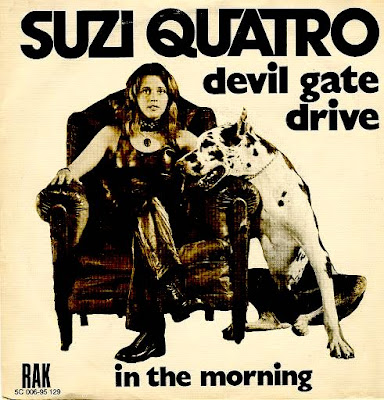
Although she slots seamlessly into the Chinnichap stable, the songs they write are carefully crafted around her persona, but did she have any input into their writing? Were the songs pre-discussed with Nicky and Mike? ‘It was an incestuous relationship’ she explains. ‘I mean that figuratively. I was here, and we did the tour with Slade. And we were getting good responses. But nothing was really happening. I did what I did. I was doing all my own songs. Then one night Mickie (Most) asked if it was alright to bring these two guys around to see me play. So they came and they saw me. They went away and wrote “Can The Can” based around what they’d seen me do on stage. They wrote it for me’ she asserts firmly. ‘They didn’t offer those songs to anyone else. And it worked fine for me. I’m quite a prolific writer. I wrote ‘B’-sides, album tracks, and some ‘A’-sides too (sometimes with future first husband Len Tuckey). In fact, it got confusing at times. We were in the studio recording “Mama’s Boy”, and I turned to Mike (Chapman) who was producing and I said ‘you’ve given me no breathing space on this one.’ And he said ‘Suzi, this is one of yours.’ And it was.’
Her image arcs back to Emma Peel and forward to Joan Jett, suited and booted, her diminutive five-foot figure in leather jump-suit, playing bass in a group of heavy guys – Len Tuckey (lead), Alistair Mackenzie (keyboards), and Dave Neal (drums). Kicking ass, beating the guys at their own hard-rocking game. And it made her a ‘Top Of The Pops’ fixture, “48 Crash” (no.3, July 1973) with lyrics variously ascribed to middle-age male impotence or the 1948 Stock Market crash – but what exactly does ‘forty-eight crash is a silk sash bash’ mean? and “Daytona Demon” (no.14, October 1973), until “Devil Gate Drive” returns her to no.1, (February 1974) with its Pepsi ‘Come Alive’ riff, dislodging Mud’s “Tiger Feet” from the top slot. It occurred to me that her teenage hang-out in Detroit – the ‘Hideout Club’ must have been a kind of prototype ‘Welcome To The Dive’ where ‘your Mama don’t know where your sister done go’? ‘It was. And every teenager had one. That place where you go that your parents don’t approve.’
She tours the USA through three months of 1975 with Alice Cooper, and returns with a vengeance with the softer melodic “If You Can’t Give Me Love” (no.4, March 1978), with the lyric ‘I know you’re the king of this discothèque thing’ to catch the tone of the changing times. And a duet with Chinn-Chapman stable-mate Chris Norman of Smokie – “Stumblin’ In” (no.41, November 1978), which goes gold when it climbs to no.4 on the US Billboard chart. Her exposure as ‘Leather Toscadero’ opposite the Fonz in TVs ‘Happy Days’ must have helped. She can also be glimpsed as a nurse in ‘Absolutely Fabulous’ (1994) and in ‘Midsomer Murders’ (2007) as electrocuted Rock Diva ‘Mimi Clifton’. And for completists, she’s the voice of ‘Rio Rogers’ in ‘Bob The Builder: Built To Be Wild’ (2006 DVD). As well as stage musical work.
By the time “She’s In Love With You” becomes her final major hit, a no.11 in October 1979, she’s a bona fide legend. Everyone knows Suzi Q. But for her inclusion on the Ferry Aid charity hit “Let It Be” (March 1987), and a fun Reg Presley duet on “Wild Thing” in 1986. But the hits are just part of the story. There are fifteen studio albums too. Alongside various Greatest Hits compilations, and her ‘Annie Get Your Gun’ (1986) stage-show soundtrack, there’s a trilogy of strong current work, ‘Back To The Drive’ (2006), ‘In The Spotlight’ (2011), and ‘QSP’ (2016) uniting Suzi with Sweet-guitarist Andy Scott and Slade-drummer Don Powell. Showcasing new original Suzi songs.

In a recent Radio Two interview Graham Gouldman claimed that you can no longer write love songs as you age… ‘I don’t agree with that at all’ she explodes vehemently. ‘I know Graham, and maybe incidents in his life have caused him to think that way. But sure you can still write love songs. You can even write them from a better perspective. I’m a romantic, I’m not even a hopeless romantic, I’m a HOPEFUL romantic. I will always believe in the power of love.’ Suzi writes love poems in her ‘Through My Eyes’ (2016) collection. Rhyming verse in “A Mother”, and the mysteries of love in “Common Denominator”. ‘I am a poetic person. I do seem to think in poetic phrases. I am a published poet. Although I usually treat things separately, songs and poems. But every once in a while I’m talking with a songwriter, and he says ‘I’ll write that down, that’s good’.’
“Easy Pickings” on the new ‘No Control’ album contrasts the artificiality of the ‘Talent/Reality Shows of Today’ – ‘where mediocrity lies’, with the true honest rural roots of guitar-picking in the Kentucky hills. Based around a riff she’s been toying with for a decade, which found its perfect home. So I guess that means Suzi won’t be doing the ‘I’m A Celebrity Get Me Big Brother House’ any time soon…? ‘They’ve asked me to do that show maybe ten times. And ‘Strictly Come Dancing’. But I turn them down. I will not be a hypocrite. We all watch reality TV. They make for good television. We sit down and watch our Saturday night reality shows. Of course we do. We all do it. But it’s not had a good effect on music. It’s all about fame and money. This is not the way stars are found. Who won last year’s ‘X-Factor’? We don’t know, neither of us. That answers my question. You should come to it with heart. I would not be doing this fifty-five years if I was in it for the fame and money. That should not be your motivation. When I wake up to the reality of the day, I’d still be doing this. I’d still be playing. In fact, I still do that. I go to pubs and get up and jam.’
“Bass Line” is the ‘story of my life’ – ‘follow the bass-line, straight down that fret line, follow that bass line.’ “I Can Teach You To Fly” has an upbeat sixties counter-melody vibe, its Turtles positivism grounded by the horns. While “Going Down Blues” seems to be a backatcha attack on a tell-all confessions-biog. ‘You picked up on that? You’ve impressed me’ she grins brightly. ‘I’m not the kind of writer who writes fiction. That song is about somebody, yes. But no. It’s a private thing. You’ve got someone in your life whose done that to you, haven’t you? I can tell.’ While “Don’t Do Me Wrong” is the first song Suzi and Richard wrote together… a unique partnership, as far as I know. Frank and Nancy Sinatra recorded “Something Stupid” together – a father-daughter relationship, but they didn’t write it. I can’t think of another mother-son writing partnership, unless ‘R’N’R’ readers can put me straight…?
But as in Suzi’s poem… ‘a five-minute conversation you wish was twenty,’ a half-hour conversation you wish was more…
Meantime, for Suzi, ‘I’m just out flying high.’
Published in:
‘R’N’R: ROCK ‘N’ REEL’
Vol.2 Issue 76
July-August (UK – July 2019)

